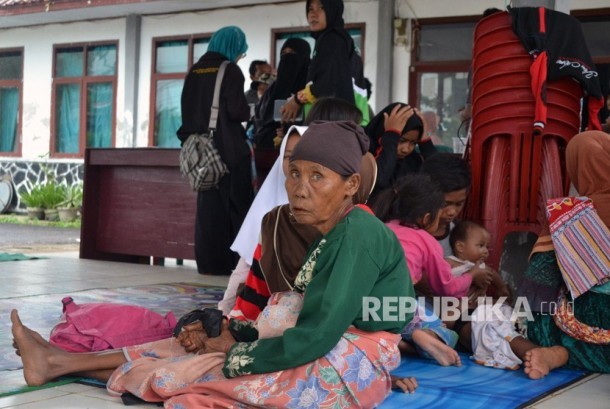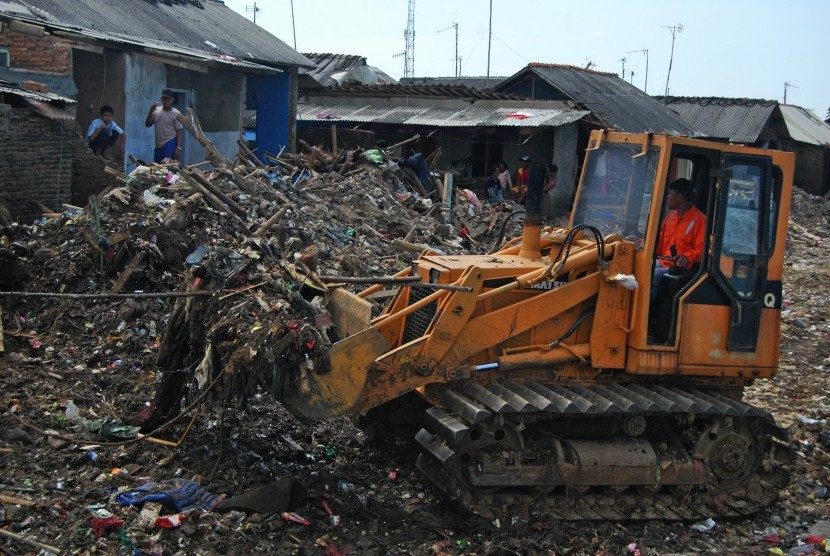REPUBLIKA.CO.ID, JAKARTA -- The European Union (EU) is further allocating 300 thousand euros (approximately Rp4.8 billion) in humanitarian funding to Indonesia to ensure the continued delivery of assistance to families hit by the recent Sunda Strait tsunami. The funding will directly benefit six thousand of the most affected people, particularly those currently displaced, in the worst-hit district of Pandeglang.
The latest allocation comes in addition to the initial 80 thousand euros delivered immediately after the disaster, bringing the EU's total humanitarian contribution to 380 thousand euros.
"This contribution from the EU underlines our solidarity with the people of Indonesia, many of whom have suffered the loss of homes, livelihoods, and belongings in the wake of the tsunami," Commissioner for Humanitarian Aid and Crisis Management Christos Stylianides noted in a statement here on Friday.
Also read: No foreigners among dead victims of Sunda Strait tsunami
This additional assistance will allow our partners to provide crucial support to address the most pressing needs of the hardest-hit families, to help them get back on their feet at the earliest possible, Stylianides remarked. The EU assistance will focus on providing relief assistance through the distribution of cash grants to the affected people, enabling them to meet their most urgent needs in terms of food, water, and other essential relief items.

A number of residents whose homes were destroyed by the tsunami evacuated to Panimbang District Office, Pandeglang Regency, Banten on Sunday (Dec 23, 2018).
Priority will be placed on vulnerable groups, including the elderly, people living with disabilities, and women-headed households, who are presently living in temporary settlements and camps in rural, coastal, and suburban areas. Hygiene kits will also be provided to women and girls to facilitate the maintenance of good hygiene practices.
The EU funding is being made available via the European Civil Protection and Humanitarian Aid Operations (ECHO) of the European Commission, through its Small-Scale Response mechanism.
More than 430 people were killed and some 14 thousand others sustained injuries when a powerful tsunami struck the coastal communities of the Sunda Strait on Dec 22, triggering strong tidal waves as high as six meters. As the cause of the tsunami was not an earthquake but a volcanic eruption, no early warning was sounded, and the people were consequently not prepared.
Over 2,700 houses were damaged and more than 40 thousand people displaced, many of whom are currently staying in displacement sites, with limited access to basic services. Several public facilities and infrastructure, hotels, resorts, and boats -- the main sources of livelihoods for many -- were also destroyed or damaged.
In the immediate aftermath of the event, a humanitarian expert from ECHO was deployed to the affected areas to assess the humanitarian needs arising from the event.
The latest disaster occurred while the country is still struggling to recover from recent major earthquakes that wreaked havoc in Lombok in July 2018 and Central Sulawesi in September 2018, claiming thousands of lives and leaving behind a trail of destruction. The EU had already provided a total of over 2 million euros for the humanitarian responses to these natural disasters.
ECHO's Small-Scale Response fund is a global mechanism that allows for rapid funding for up to 300 thousand euros for humanitarian aid in countries affected by natural and man-made disasters.


